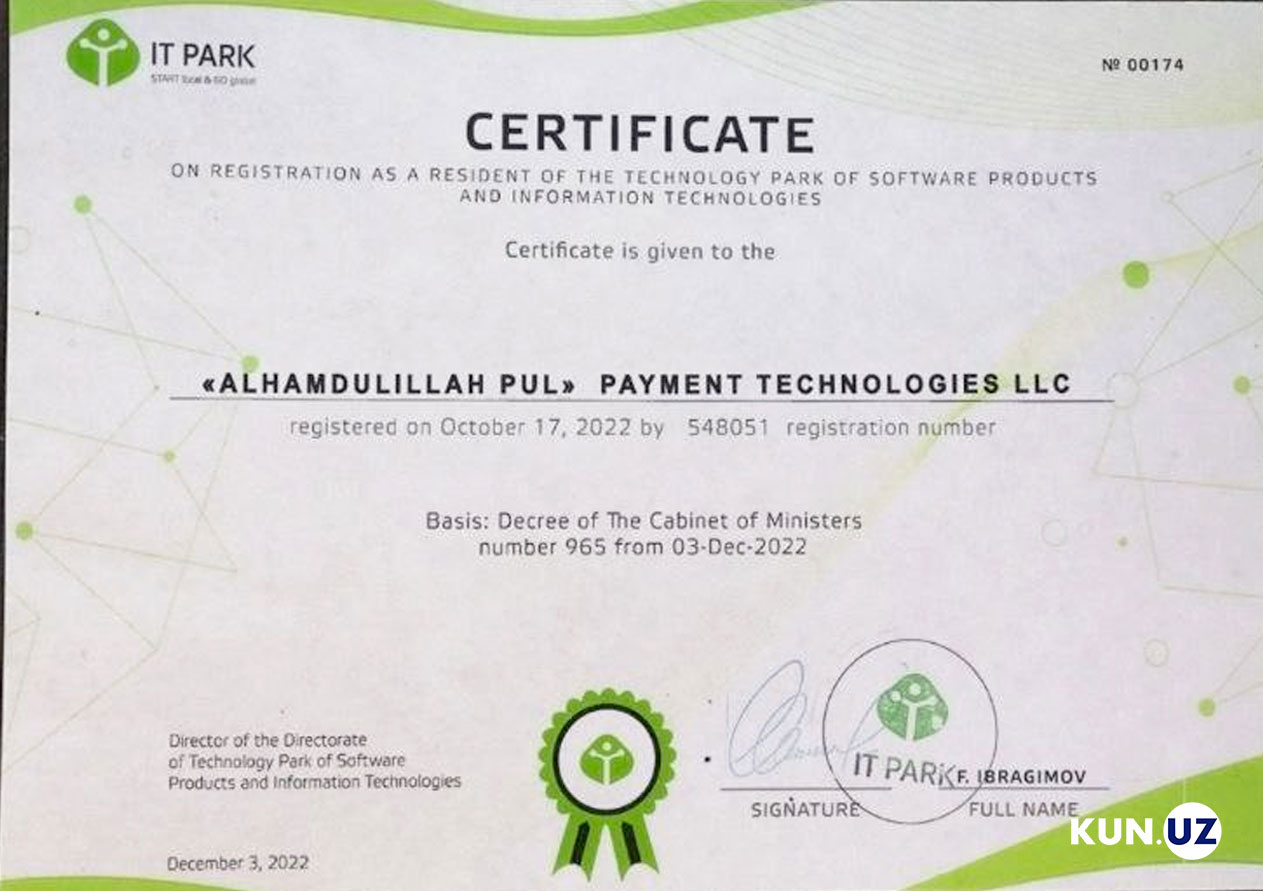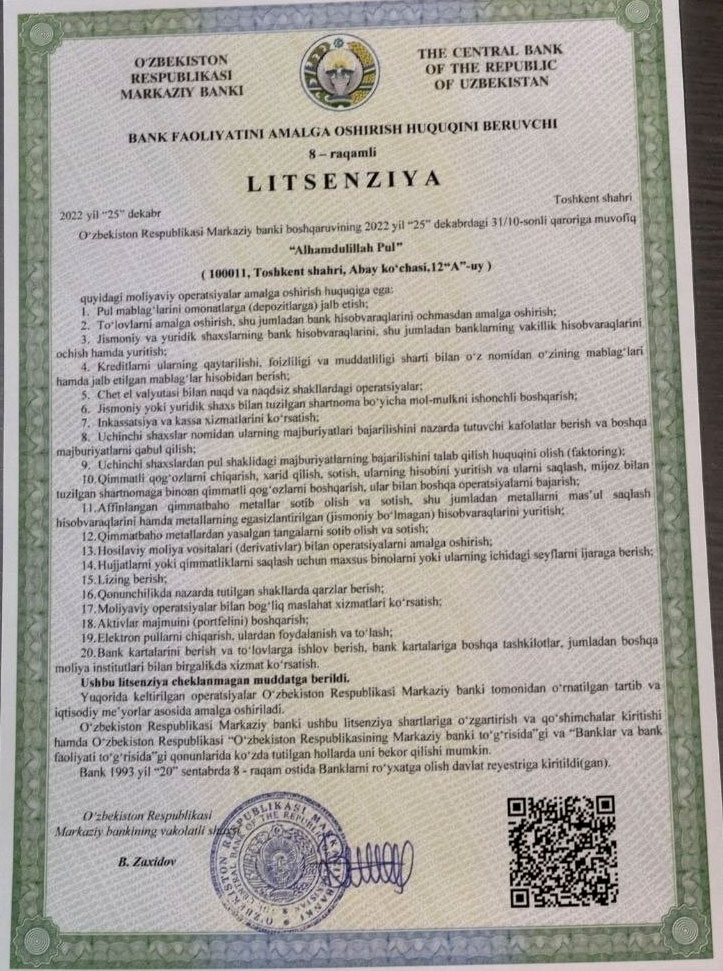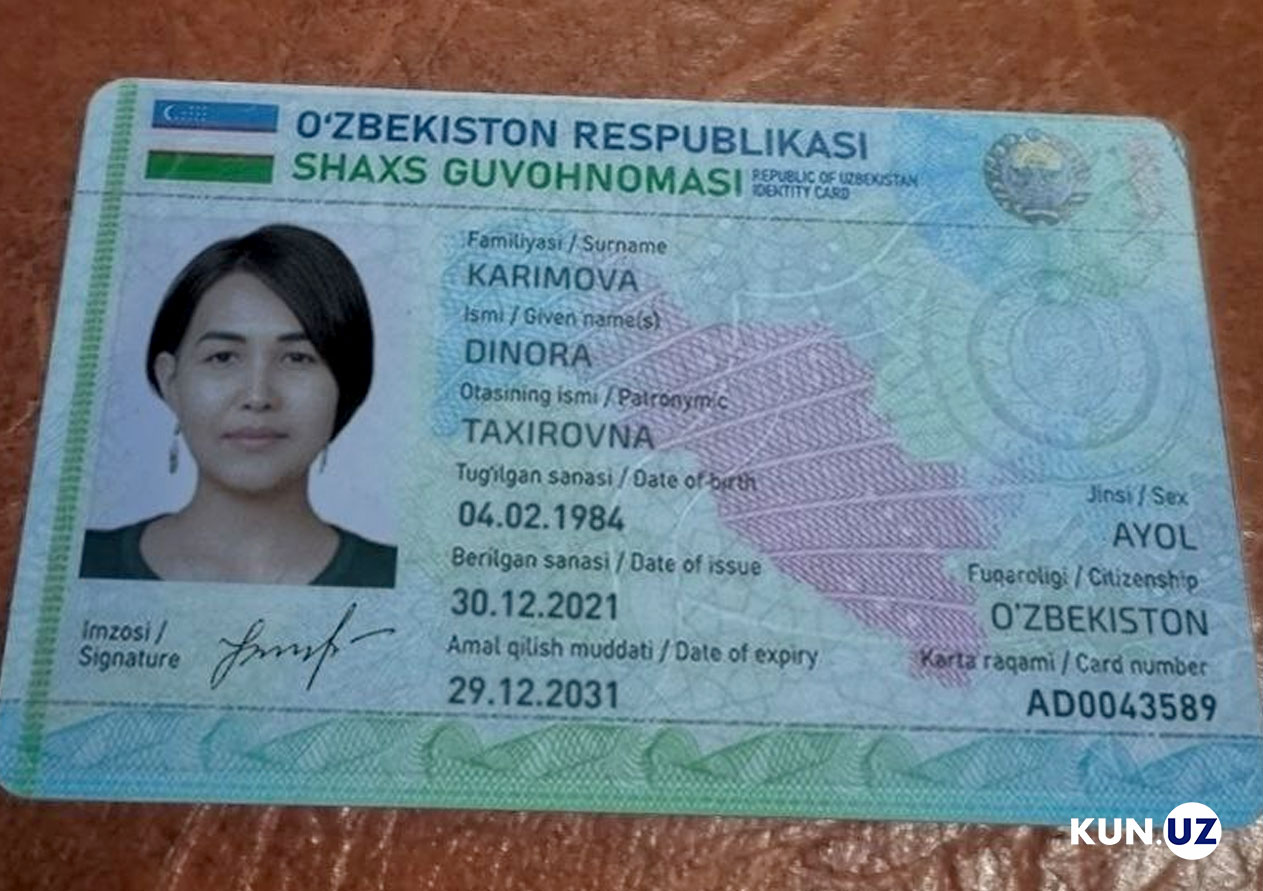Law enforcement's inaction: The growing threat of Telegram scams in Uzbekistan
New scammers have emerged on Telegram, promising to increase 500,000 UZS to 3.2 million UZS and 4 million UZS to 55 million UZS within 4 hours. Several people have already fallen victim to them. Despite warnings and alerts, people continue to be deceived. Law enforcement agencies seem to be quietly observing the situation.

Photo: Kun.uz
Recently, scammers have been easily swindling thousands of Uzbeks out of significant amounts of money through very simple methods.
For instance, the Telegram channel "Alhamdulillah Pull" promises people to multiply their money several times within 4 hours.

Dinora Karimova, who introduces herself as the project leader, guarantees a 100% increase of 500,000 UZS to 3.2 million UZS, 1 million UZS to 8.5 million UZS, and 4 million UZS to 55 million UZS. She deceives people by saying that they just need to wait for 4 hours.
“We work through cryptocurrency. For example, if you invest 500,000 UZS, we will increase your money to 3 million 200 thousand UZS by investing it in the stock market. We have over 8 years of experience. You will win 100%!” said Dinora Karimova to a Kun.uz reporter who spoke with her online as a potential customer.
She mentioned that the money could be transferred to a certain card number.

The card number is registered to Khushbokova U. at Ipoteka Bank. To convince people, the scammer also sent fake passport information, certificates, and licenses made using Photoshop.
For information, the official website of the Central Bank lists licensed credit organizations, which is regularly updated. It is advisable to use this information to check the legitimacy of any organization.



The channel also features videos of several citizens who invested money in the project and allegedly won large amounts.
Recently, Kun.uz conducted an investigation on another Telegram channel called “Uzbekiston investuz” that promises to return 1.5 million UZS as 20 million UZS within 60 minutes. Many people have commented under this investigation, stating that they have fallen victim to this scam.

Why are scammers operating freely in Uzbekistan?
In many cases, law enforcement agencies do not pay attention to such frauds due to the lack of complaints from victims. However, this is not correct.
In fact, there are about ten agencies responsible for protecting people from cybercrimes: the Cybersecurity Center, structures of the Ministry of Internal Affairs, the Department for Combating Economic Crimes under the General Prosecutor's Office, tax authorities, cybersecurity units of banks, the Central Bank, and so on. According to Kun.uz's research, none of these agencies have a department or unit specifically dedicated to monitoring suspicious business projects, questioning their activities, and taking prompt action.
It should be noted that many countries have special authorized units that deal with identifying and investigating suspicious activities. Additionally, some countries maintain a list of financial pyramid schemes.
For example, Kazakhstan has a separate state organization, the Financial Monitoring Agency, which maintains a list of financial pyramids. This increases public awareness about fraudulent projects and financial pyramids.
Uzbekistan should also take similar measures, and instead of merely conducting awareness campaigns against financial pyramids, it is high time to take serious action against them.
Kun.uz once again urges our citizens not to invest money in unguaranteed, suspicious, and risky projects. At the same time, we ask the law enforcement agencies, which should protect the public from various illegal activities, swindlers, and fraudsters, to work more boldly and to take prompt action against schemes aimed at blatantly defrauding people's money.
Related News

21:28 / 14.11.2024
Criminal case initiated against Tashkent IVF center following fraud allegations

12:55 / 11.11.2024
Authorities uncover driving license fraud schemes in Samarkand and Andijan

14:32 / 07.11.2024
Tashkent police alert public to new fraud scheme on Telegram targeting employees through fake executive profiles

13:05 / 24.10.2024



